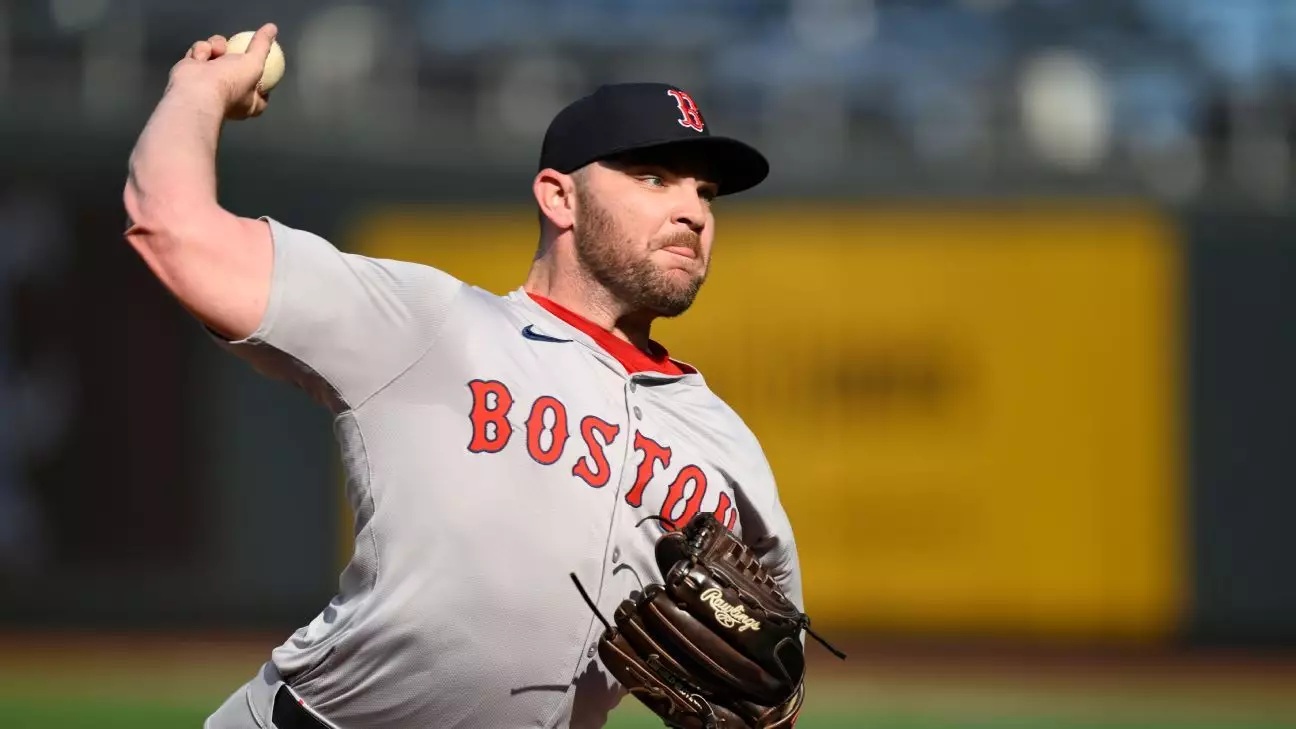In the era of digital connectivity, athletes are thrust into a spotlight that can quickly turn toxic. The recent incident involving Boston Red Sox reliever Liam Hendriks sheds light on the darker aspects of modern sports culture, where a simple game can ignite a firestorm of hostility. Just days after facing a devastating loss against the New York Mets, Hendriks found himself receiving death threats directed not only at him but also at his family. This alarming reality raises significant questions about the responsibilities of both fans and social media platforms, and it underscores the essential need for change within the sports community.
The remarks from Hendriks, who bravely shared his experiences on Instagram, reveal a profound disillusionment. “Threats against my life and my wife’s life are horrible and cruel,” he stated, urging a collective call to action for fellow athletes who may find themselves in similar, harrowing situations. Such declarations highlight the immense pressures athletes endure—not just from their performances, but from an unforgiving audience wielding Twitter fingers as weapons. The emotional toll of this online harassment goes beyond the individual; it negatively impacts families, creating an environment that belittles the sacrifices made by those closest to the players.
A Manager’s Perspective: The Burden of Public Life
Red Sox manager Alex Cora, stepping into the role of both a leader and a confidante, expressed empathy toward Hendriks during a press conference. Addressing the complex dynamics of being a public figure, Cora highlighted the disturbing reality that fans often feel entitled to hurl insults, threats, and vitriol at athletes. His comments reflect a broader issue that transcends baseball—a societal trend where individuals hide behind anonymous profiles to voice their disdain, often leading to real-world consequences.
“As public figures, we are in the spotlight, and people feel they can say whatever they want,” Cora remarked. This candid observation calls for a serious debate about the impact of anonymity in online communication. In a world where an individual can hide behind a screen, it becomes painfully easy to dismiss the humanity of others. Cora’s words resonate deeply; it serves as a reminder that athletes are not just statistics or logos on a jersey—they are people with families, aspirations, and vulnerabilities.
The Ripple Effects of Negativity
Of particular concern is the reality that threats against athletes are often dismissed as mere “noise” by a significant portion of the public. Yet, the implications are severe, as evidenced by Cora’s own experiences with social media backlash. After missing a game to attend his daughter’s graduation, he was inundated with criticism—importantly illustrating that the scrutiny extends beyond performance and into the personal lives of these public figures. “I put my family in a tough spot,” Cora admitted in discussing the dangerous backlash he faced after the graduation incident. His acknowledgment of the fear surrounding such interactions forces us to confront a harsh truth: that the game is no longer just about winning on the field, but also about fiercely protecting one’s mental health in a relentless digital landscape.
Social media has opened avenues for dialogue and connection among fans and players, but it has also paved the way for cyberbullying and threats. As Cora aptly noted, the intertwined evolution of sports and gambling forms a “dangerous path” for fans who take game outcomes personally. The irrationality of blaming an athlete for a missed call or unfavorable play can escalate into malicious threats, reflecting societal frustrations rather than fair critiques of performance.
Demanding Change in a Toxic Climate
It’s time for a reckoning. The sporting world needs to grapple with the implications of social media culture, demanding stringent measures to mitigate online hostility. The responsibility extends to social media platforms; they must implement systems to not only identify and penalize abusive users but also to cultivate an atmosphere that sees athletes as human beings rather than just commodities.
The saga of Liam Hendriks serves as a wake-up call. Athletes must not navigate the perilous waters of public scrutiny alone, and fans must internalize the impact of their words. While passion for sports is commendable, drawing a line between enthusiasm and aggression is essential to fostering respect and empathy at all levels of competition.

